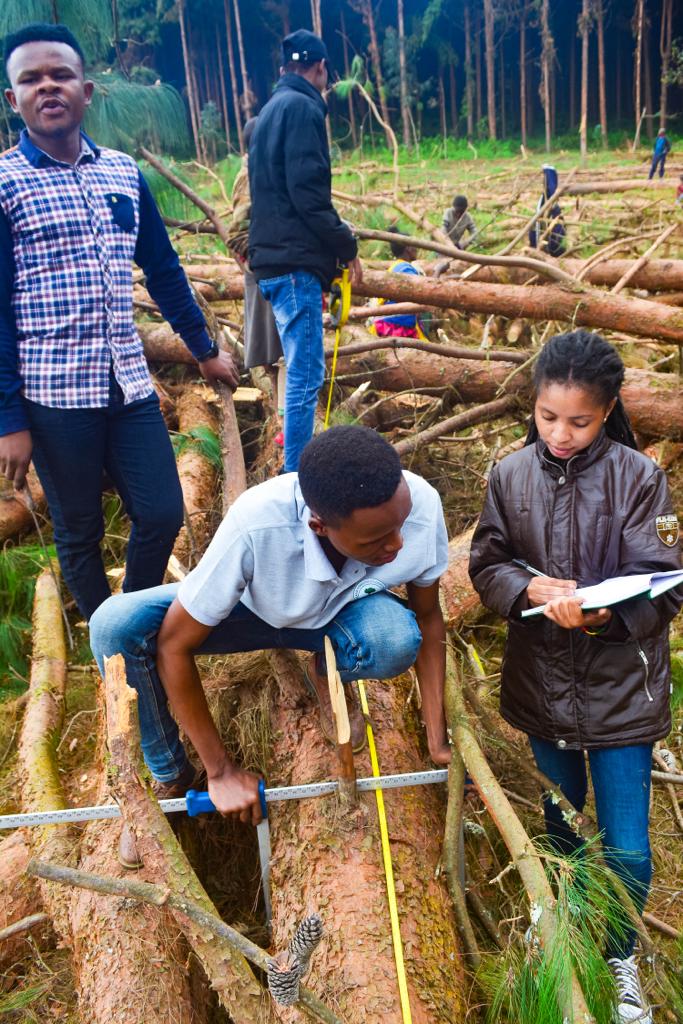In the breathtaking landscapes of the slopes of Mount Meru, nestled within the Arusha region, lies the Sokoine University Training Forest. This verdant haven serves as a vibrant hub for the College of Forest Wildlife and Tourism, where aspiring foresters embark on a transformative journey through practical training. With a primary focus on producing skilled professionals in forest management, these training activities have a profound impact on shaping the future of Tanzania’s forest resources and bolstering the contribution of the forest sector to the national economy.
The field practical training program at Sokoine University Training Forest is meticulously designed to provide students with hands-on experience in various aspects of forest management. Under the guidance of seasoned instructors and forest experts, students are immersed in real-world scenarios, tackling challenges, and acquiring invaluable skills. From forest inventory techniques to silvicultural practices, the training encompasses a comprehensive range of topics crucial for sustainable forest management.
One of the key advantages of this training program is the emphasis placed on instilling a deep understanding of the ecological intricacies of forests. Students learn about the unique ecosystems, species diversity, and the delicate balance that must be maintained to preserve the health and vitality of forests. Practical exercises involve assessing forest health, identifying tree species, and understanding the interdependencies between flora and fauna. By immersing themselves in the natural environment, students develop a profound respect and appreciation for the importance of conservation and responsible stewardship.
Furthermore, the training activities at Sokoine University Training Forest focus on equipping students with practical skills in forest resource assessment and utilization. Through field surveys and data collection, students gain proficiency in quantifying timber volume, estimating biomass, and assessing the economic value of forest resources. They also learn sustainable harvesting techniques, forest regeneration strategies, and the implementation of conservation measures. These skills are crucial for ensuring the sustainable utilization of forest resources while maximizing their contribution to the national economy.
The impact of the field practical training extends far beyond the confines of the university campus. As students graduate and embark on their professional careers, they become catalysts for positive change in Tanzania’s forest sector. Armed with a comprehensive understanding of forest management principles, coupled with practical experience, these skilled foresters become instrumental in shaping policies, implementing sustainable practices, and promoting the conservation of forest resources.
The contribution of the forest sector to the national economy is significant and has the potential for further growth. The well-trained foresters emerging from Sokoine University Training Forest play a pivotal role in realizing this potential. Their expertise in sustainable forest management, coupled with their commitment to conservation, ensures the responsible utilization of forest resources while maximizing economic benefits. By spearheading afforestation initiatives, implementing effective fire management strategies, and advocating for sustainable logging practices, these foresters become agents of change, steering Tanzania towards a greener and more prosperous future.
In conclusion, the field practical training taking place at Sokoine University Training Forest, under the College of Forest Wildlife and Tourism, is instrumental in producing highly skilled foresters for Tanzania’s forest management. By providing hands-on experience, fostering ecological understanding, and equipping students with practical skills, this training program cultivates a new generation of professionals who will shape the sustainable management of forest resources. Their contributions will not only safeguard the natural heritage of Tanzania but also propel the forest sector towards greater economic growth and environmental stewardship.

